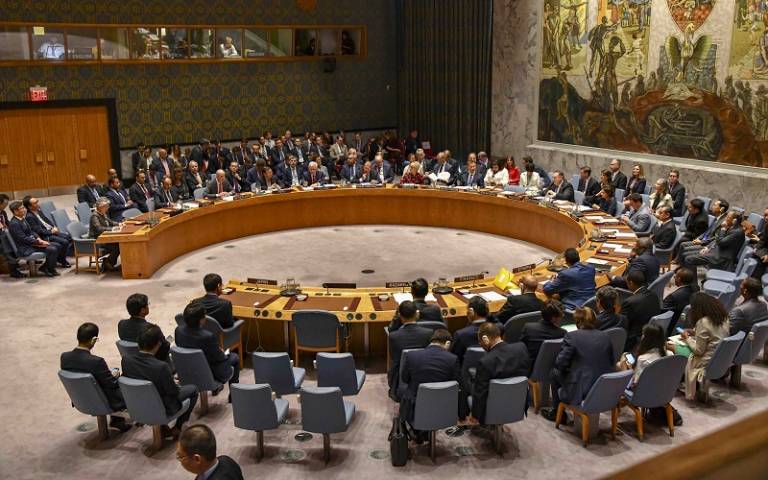Contested Multilateralism: Explaining the Proliferation of Regime Complexes
18 May 2015
Corina Campian (MSc Global Governance and Ethics) on the GGI keynote lecture with Professor Robert O. Keohane.

Professor Robert O. Keohane of Princeton University visited the Global Governance Institute today, and as any student of International Relations will attest to, such an occasion is cause for much excitement.
The topic of this unique and valuable encounter was the concept of "contested multilateralism", discussed in a 2014 piece written by Keohane and Julia C. Morse, which describes the efforts of multilateral bodies, states or non-state actors to challenge the practices and organisation of existing multilateral institutions. While the fragmentation visible in various international regime complexes such as health, the environment, and trade has previously been explored in the literature, Professor Keohane observes that competition between different multilateral actors is increasing. Contested multilateralism is therefore a pervasive phenomenon in contemporary world politics that can take the form of 'regime shifting' or 'competitive regime creation'. It describes both the strategies pursued by actors to change the international status quo, and the situations involving contestation or forum-shopping.
"Unilateralism and to some extent bilateralism have become obsolete in recent years. We need to move away from the binary associated with either bilateral or multilateral processes but instead ask the question: Whose multilateralism does this regime represent?"
Prof Keohane's discussion revolved around conflicts occurring between, rather than within multilateral institutions. The achievement of successful multilateralism by a dissatisfied coalition is conditioned by the availability of outside options, such as switching to an existing alternative or creating a new one, and the credibility of the threat to use these. Our first example was in the field of anti-terrorism policy: after 9/11, the United Nations Security Council integrated targeted financial sanctions within its security regime, eventually allowing countries to add the names of any individuals suspected of terrorism to a sanctions list whereupon their assets would be frozen. The loose implementation of these provisions by member states led to the incorrect inclusion of individuals. The latter, in turn, could not contest the decision due to the absence of an overarching court that could challenge the decisions of the Security Council. The European Court of Justice, however, issued an advisory opinion in 2008 calling for the implementation of human rights clauses in the Security Council's anti-terrorism policies as well as for improved due process.
"The UN Security Council realised that if they do not make any changes, the European Court of Justice would create a hole in the regime, thus undermining its authority."
Consequently, the Security Council created an Office of the Ombudsperson to deal with appeals, and, as a result, 26 individuals have been delisted since its creation in December 2009. This is therefore a very good example of institution-led regime shifting, in which the ECJ was able to shape UN practices through contestation and adverse judgement.
The second emerging practice of contested multilateralism is competitive regime creation, in which, in the absence of an alternative institution, dissatisfied coalitions set up new organisations, thus fuelling the proliferation of regime complexes. An illustrative example is the global health architecture, where the World Health Organisation has often been accused of inefficiency and an inability to respond to global health challenges. The Children's Vaccine Initiative (CVI), backed by UNICEF, UNDP, the World Bank, and the Rockefeller Foundation, was inadequately developed within the WHO, and as a result, the Global Alliance on Vaccines Initiative was created in 2000 with the support of the Gates Foundation. Similarly, the WHO's leadership capabilities received another blow in 1996 when UNAIDS was created as a result of its inability or unwillingness to cooperate with other UN agencies to manage the global response to AIDS.
Contested multilateralism is therefore a source of power fragmentation, and as Professor Keohane illustrated in this talk, it is becoming increasingly prevalent today due to the plurality of actors interacting on the global political stage. It remains, however, an option that favours powerful actors with the capacity and credibility to disrupt the status quo. Future studies could look into the conditions under which the fragmentation of regime complexes results in better public outcomes - as seems to be the case in the health domain - as well as into failed, co-opted, and successfully institutionalised attempts at contested multilateralism.
 Close
Close


